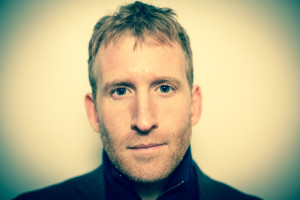Protester’s trip ends in arrest
By Darren Reidy
(April 21, 2000, The Flat Hat, student paper of the College of William & Mary, page 1, original available at: https://digitalarchive.wm.edu/)
The crowd erupted when sophomore Peter Maybarduk was released in front of the D.C. courthouse at 3:30 Monday morning after 13 hours in custody. Protesters gave him food and took him back into their masses, waiting for other activists to emerge from the doors. Their numbers had decreased but their zeal had not as the International Monetary Fund protesters’ weekend siege on the city came to a close.
Maybarduk, a member of Students for Environmental and Economic Justice and the
president of the Student Environmental Action Coalition, was voluntarily arrested last weekend in what has been called the “Mobilization for Global Justice.” Police opened a barricade for Maybarduk and his fellow protesters who understood they would be taken into custody as soon as they crossed the line.
“I’ve spent a lot of time in affected countries … At the time, it seemed the most powerful medium [of protest],” Maybarduk said in defense of his act of civil disobedience.
Maybarduk was one of 30 College students who attended the protest. Most came with
their respective interest groups, which included SEEJ, SEAC, the Tidewater Labor Support
Committee and Roots and Shoots. Although the groups differ, their major objectives of
promoting environmental and economic justice are similar.
The IMF protest was an important opportunity for the group, senior Kristina Bayman said.
In fact, Bayman, with the help of sociology professor Jennifer Bickham-Mendez, cofounded
SEEJ this semester with this event in mind.
“Our goal is to draw attention to issues and question institutions,” Bayman said. “The
IMF is run by the G-7 [seven richest nations], and wealth generally returns to these governments and the corporate elite.”
Other participants echoed the same frustration at the increasing debt impoverished countries suffer from when they borrow from the IMF and World Bank.
“There is no need for them [IMF and World Bank],” Maybarduk said. “They are
working backwards in alleviating poverty.”
James Spady, a graduate student and codirector of the Tidewater Labor Support
Committee, stresses the effects of IMF’s policies on American jobs.
“Globalization causes the exportation of jobs and sweatshop conditions in [less-developed countries],” Spadey said.
Spadey explained that the IMF includes stipulations with its loans, including a free trade
clause. In order to increase profit, corporations build factories within the boundaries
of these free-trade zones. He added that they hire local workers at low wages at the expense of American jobs.
Maybarduk, Bayman and Spadey all felt the media misrepresented the protest by focusing on acts of violence, rather than the views that the protesters were trying to project.
“It’s inaccurate reporting,” Maybarduk said. “I didn’t see a single aggressive act.”
Beyham and Spadey both called it peaceful and stressed the spirit of the protesters.
In fact, Beyham said that there was “good rapport between police and protesters.”
After his long weekend, which lasted from Thursday to Tuesday, Maybarduk summed up
the goal of the protest.
“The United States is the center for these organizations [IMF and World Bank],” he said. “If it can be shown they don’t have U.S. U.S. support, then they are invalid.”


